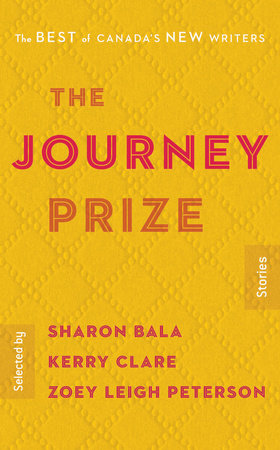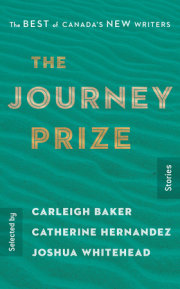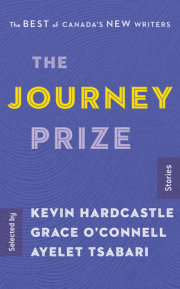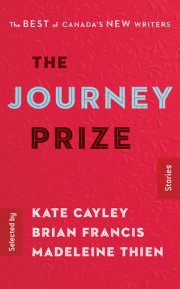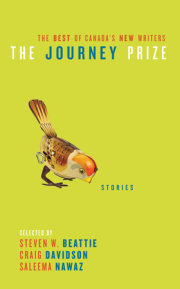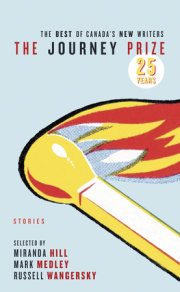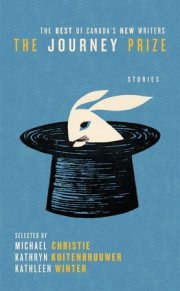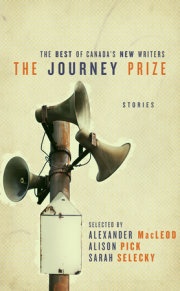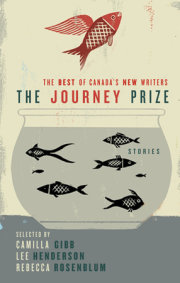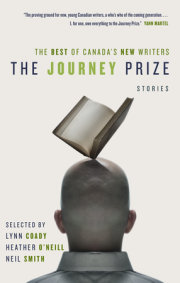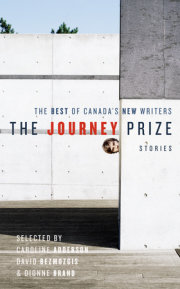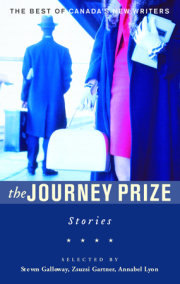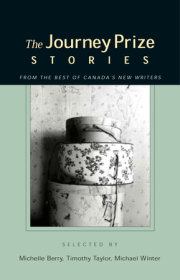IntroductionA package arrived in the mail. Inside: exactly one hundred short stories with the authors’ names blacked out. Our job was to read them all and choose the very best for inclusion in the thirtieth edition of
The Journey Prize Stories. The instructions were straightforward. The decisions were not.
One hundred disparate works of art, each a unique specimen with its own plot, characters, and style. What does it mean to be “the best”? Does it mean the most accomplished? The most original? The most ambitious? The most important or timely?
One requirement that was immediately obvious: the narrative of the story had to pull us in and keep us asking, “What happens next?” Crisp prose was desirable, of course, and deep emotion very welcome. But first and foremost, a story had to excite our curiosity and grip it to the end.
It also had to show us something new and, paradoxically, something old, something we recognized from the world. The stories that delighted us were ones that recast the familiar—stories that took an emotion, place, or theme we knew well and turned it to show us a new angle. Regina through the eyes of a student from Uganda; a mercurial friendship between two older women; being lost in the woods inside a bear that isn’t a bear; a story that name drops Cheever in the first paragraph, then veers in a direction Cheever would never have gone.
To be clear: we three jurors did not always see eye to eye, at least not on the first read. However, as we debated and reconsidered, our opinions shifted and coalesced. Unsurprisingly, the stories that emerged as our unanimous selections were ones that reward re-examination—tales so rich they reveal new insights on second, third, and even fourth reads.
This process of discussing and engaging and, ultimately, selecting has made us increasingly thoughtful and critical readers. As we whittled down the selections, we were forced to interrogate not just the stories, but also our own aesthetic preferences and biases. The thirteen that remain came through this crucible unscathed.
In this collection, you will find stories set in Vietnam and Spain and California, in a suburban strip mall in the Prairies, and at track level in a Toronto subway station. Some are minimalist, spare in detail but rich in emotional truth. Others are densely written, full of startling metaphor and image. There is birth. There is death. Also: love triangles, parental anxiety, betrayal, grief, adventure, unexpected moments of levity, and arresting dialogue. All are thoughtful explorations of what it means to be alive, rendered with inquisitiveness, insight, and uncertainty.
Yes, these stories are suspended in uncertainty—about what, exactly, has happened; about whose point of view is reliable; about what conclusions we might draw at a story’s end. At times, this can be unsettling for the characters and readers alike. But these thirteen stories also underline the expansive potential of uncertainty, which requires one to reach beyond the limits of their knowledge, and demands an openness to asking questions, considering different answers, and finding new possibilities in mutability.
For the past three decades, the Journey Prize anthology has been a harbinger, a sampling of the literary talent emerging in this country. This year in particular, as Canadian literature struggles to dismantle what is broken and rebuild a better, stronger culture from within, it is heartening to read the stories in this collection, each one meticulously crafted and told with precision and care. These stories and their authors, with their assured new voices, represent the future of literature in this country. And the future is hopeful.
Sharon Bala
Kerry Clare
Zoey Leigh Peterson
May 2018
Copyright © 2018 by Various. All rights reserved. No part of this excerpt may be reproduced or reprinted without permission in writing from the publisher.

